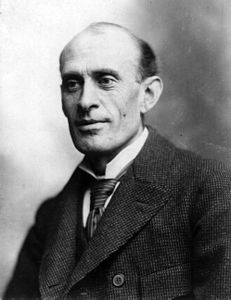Analysis of Mother and child
Eugene Field 1850 (St. Louis) – 1895 (Chicago)
One night a tiny dewdrop fell
Into the bosom of a rose,--
"Dear little one, I love thee well,
Be ever here thy sweet repose!"
Seeing the rose with love bedight,
The envious sky frowned dark, and then
Sent forth a messenger of light
And caught the dewdrop up again.
"Oh, give me back my heavenly child,--
My love!" the rose in anguish cried;
Alas! the sky triumphant smiled,
And so the flower, heart-broken, died.
| Scheme | ABAB CDCD CCCC |
|---|---|
| Poetic Form | Quatrain |
| Metre | 1101011 01010101 11011111 11011101 1001111 010011101 11010011 0101101 111111001 11010101 01010101 010101101 |
| Closest metre | Iambic tetrameter |
| Characters | 415 |
| Words | 81 |
| Sentences | 6 |
| Stanzas | 3 |
| Stanza Lengths | 4, 4, 4 |
| Lines Amount | 12 |
| Letters per line (avg) | 26 |
| Words per line (avg) | 6 |
| Letters per stanza (avg) | 104 |
| Words per stanza (avg) | 25 |
Font size:
Submitted on May 13, 2011
Modified on March 05, 2023
- 23 sec read
- 177 Views
Citation
Use the citation below to add this poem analysis to your bibliography:
Style:MLAChicagoAPA
"Mother and child" Poetry.com. STANDS4 LLC, 2024. Web. 28 Apr. 2024. <https://www.poetry.com/poem-analysis/13011/mother-and-child>.


Discuss this Eugene Field poem analysis with the community:
Report Comment
We're doing our best to make sure our content is useful, accurate and safe.
If by any chance you spot an inappropriate comment while navigating through our website please use this form to let us know, and we'll take care of it shortly.
Attachment
You need to be logged in to favorite.
Log In